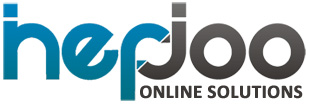
In today’s digital landscape, the power of optimized titles in Google rankings cannot be overlooked. Extensive research has shown that a staggering 85% of titles that are keyword-optimized manage to secure a place within the top 5 positions.
With such a remarkable statistic, it is no surprise that a significant 70% of enterprise marketers prioritize the importance of having correct title tags and meta descriptions on their websites. The impact of optimized titles on Google rankings is undeniable, making it a crucial aspect of any successful digital marketing strategy.
In fact, 95% of pages in the top 10 have meta descriptions. With proper grammar and error-free titles and meta descriptions, user engagement and search visibility can be significantly improved.
So, let’s explore the strategies and techniques that can help marketers harness the full potential of keyword-optimized titles in Google rankings.
Key Takeaways
- 85% of titles that include keywords rank in the top 5 positions of Google.
- Having correct title tags and meta descriptions is a key priority for 70% of enterprise marketers.
- 30% of respondents believe having correct titles and meta descriptions is important or very important.
- 95% of pages ranking in the top 10 have meta descriptions.
The Impact of Keyword-Optimized Titles on Google Rankings
Having keyword-optimized titles significantly impacts the rankings of webpages on Google, with 85% of titles including keywords ranking in the top 5 positions. This indicates the importance of keyword density in titles for better search visibility.
Research has also shown a correlation between title tag length and search visibility. Shorter title tags tend to perform better in search rankings, as they are more concise and relevant to the user’s search intent. On the other hand, longer title tags may dilute the keyword relevance and can lead to lower rankings.
Therefore, it is crucial for marketers to strike a balance between incorporating keywords and keeping the title tag length optimal.
The Power of Optimized Titles in Google Rankings: The Role of Title Tags in Boosting Search Visibility
Properly crafted title tags significantly contribute to improving the visibility of a webpage in search results. One important aspect to consider when optimizing title tags is their length. Studies have shown that the length of title tags can impact search visibility.
Shorter title tags tend to perform better, as they are more likely to be fully displayed in search results and attract user attention. On the other hand, longer title tags may get truncated, resulting in a loss of valuable information and potentially lower click-through rates.
Several case studies have demonstrated the impact of title tag optimization on search rankings. By optimizing title tags with relevant keywords, websites have experienced significant improvements in their search visibility and rankings.
In some cases, websites have seen a boost in organic traffic and higher click-through rates. These case studies highlight the importance of incorporating targeted keywords into title tags to improve search visibility and drive more organic traffic to a webpage.
Optimizing Meta Descriptions for Higher Search Rankings
Optimizing meta descriptions contributes to improving the search rankings of a webpage. This is done by providing concise and compelling summaries that entice users to click through from search results.
Importance of compelling meta descriptions for click-through rates:
- Well-crafted meta descriptions increase the likelihood of users clicking on a webpage.
- By incorporating specific keywords in your meta descriptions, you’ll be able to captivate a larger audience of highly relevant visitors.
- Compelling meta descriptions set expectations and increase the chances of user engagement.
Best practices for crafting keyword-rich meta descriptions:
- Include relevant keywords that align with the content of the webpage.
- Keep the meta description within the recommended character limit to ensure visibility on search results.
- Write unique meta descriptions for each webpage to avoid duplicate content issues.
Crafting keyword-rich meta descriptions requires a strategic approach to drive higher click-through rates and improve search rankings. By understanding the importance of compelling meta descriptions and following best practices, marketers can optimize their webpages for better visibility and engagement.
Because the title tag and meta description both show up in search results, think about writing them like an ad. The Title tag is like the headline, and the meta description is the subhead.
https://www.thehoth.com/learn/seo/on-page-seo/meta-description/
Optimizing Meta Descriptions for Higher Search Rankings
How Keyword Research Enhances Title Optimization
Keyword research plays a crucial role in enhancing the optimization of title tags. The importance of keyword research in title optimization cannot be overstated. By conducting thorough keyword research, marketers can identify the most relevant and high-performing keywords to include in their title tags. This allows them to align their content with user search intent and increase their chances of ranking higher in search engine results.
Marketers can use a variety of techniques to effectively select keywords for title optimization. They can start by analyzing their target audience and understanding their search behavior. This can involve conducting keyword research using tools like
Google Keyword Planner or SEMrush to identify popular and relevant keywords. Marketers should also consider using long-tail keywords, as they tend to have less competition and can target more specific search queries. Additionally, monitoring keyword performance and making adjustments based on data and analytics can help refine the keyword selection process for optimal results.
The Connection Between Title Optimization and User Engagement
Marketers can enhance user engagement by crafting compelling and captivating title tags that resonate with their target audience. To truly understand the impact of title optimization on user engagement, measuring the effectiveness of title optimization on click-through rates is crucial.
Additionally, it is important to consider the relationship between title tags and bounce rates, as this can provide insights into the effectiveness of the title in attracting and retaining users.
The connection between title optimization and user engagement can be measured by analyzing click-through rates. This data can help marketers determine how well their title tags are enticing users to click on their content. By optimizing title tags to align with user intent and expectations, marketers can increase the likelihood of users engaging with their content.
Furthermore, the relationship between title tags and bounce rates is an important factor to consider. If users click on a title tag and immediately leave the page without engaging further, it could indicate that the title tag did not accurately represent the content or failed to capture the user’s interest. By analyzing bounce rates in relation to title tags, marketers can identify areas for improvement and make adjustments to enhance user engagement.
Strategies for Effective Keyword-Optimized Titles in Google Rankings
Crafting title tags that align with user intent and incorporate relevant terms can significantly improve a webpage’s visibility in search engine results. The importance of long tail keywords in title optimization cannot be overstated.
Long tail keywords are specific, highly targeted phrases that users are more likely to search for. By incorporating these keywords in title tags, webpages can better match the search queries of their target audience, increasing the likelihood of ranking higher in Google.
When optimizing title tags, it is important to follow best practices such as placing the keyword near the beginning, keeping the title tag under 60 characters, and using natural language that entices users to click.
These strategic techniques, combined with data-driven keyword research, can help marketers create compelling title tags that drive traffic and improve search rankings.
Frequently Asked Questions
How Do Grammar Errors in Title Tags and Meta Descriptions Affect Search Rankings?
Grammar errors in title tags and meta descriptions can negatively affect user engagement. However, they do not directly impact search rankings. It is important to prioritize user intent and ensure error-free content for better search visibility.
What Are Some Other Factors Besides Keywords That Influence Search Rankings?
User engagement and backlink profile are two key factors that influence search rankings. User behavior and interaction with search results impact rankings, while the significance of backlinks and their relationship with keyword optimization also play a role.
How Much Time Do Enterprise Marketers Typically Invest in Writing Title Tags and Meta Descriptions?
Enterprise marketers typically invest varying amounts of time in writing title tags and meta descriptions. The time investment can range from 1 to 9 hours per week. This investment is crucial for effective title tag optimization techniques and improving click-through rates, leading to better search rankings.
What Is the Correlation Between Keyword Usage and Search Rankings?
The correlation between keyword usage and search rankings is complex. While keywords are a ranking signal, they may not be the sole reason for top positions. Other factors, like content quality and user engagement, also play significant roles. Additionally, grammar errors do not directly impact search rankings but can affect credibility and user experience. It is important to optimize titles and meta descriptions for better search visibility.
What Is the Research Methodology Used to Gather Insights on the Correlation Between Title Tags, Meta Descriptions, and Search Rankings?
The research methodology used to gather insights on the correlation between title tags, meta descriptions, and search rankings involved a combination of data analysis and a survey of 300 enterprise marketers.
Final Thoughts
The power of keyword-optimized titles in Google rankings cannot be underestimated. The research findings clearly demonstrate the significant impact that proper title tags and meta descriptions have on search visibility.
With 85% of keyword-optimized titles ranking in the top 5 positions, it is evident that investing time and effort in optimizing titles is crucial for success. By understanding the correlation between title optimization and user engagement, marketers can develop effective strategies to enhance their search rankings.
Remember, keywords are just one piece of the puzzle, but when combined with high-quality content and user-focused optimization, they can lead to impressive results. So prioritize title tags and meta descriptions, and watch your search visibility soar.
